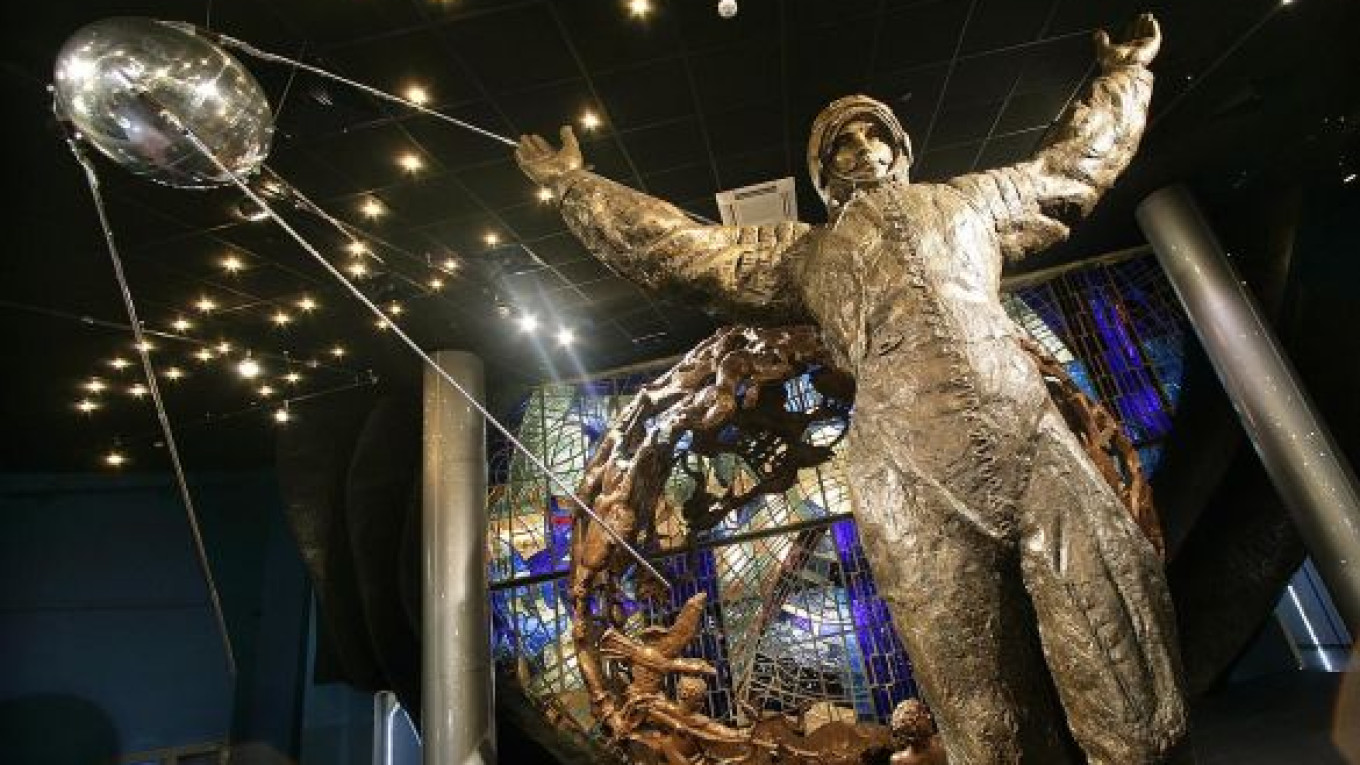Space is a dark and mysterious thing. In the case of Russia's exploration plans, this may be doubly so.
The government adopted the Russian Space Program in December and published it a few weeks ago. But apart from the ambitious plans, the program might also contain a defense-oriented classified section.
The Federal Space Agency, known in Russian as Roskosmos, drafted the plan and aspires to make Russia a leader in space exploration. It aims to foster a positive image of Russia as a high-tech country, and it is willing to go to the moon and back to make that happen.
The program materials state that Russia occupies the major position in space activities worldwide, but they lament that the country is still behind the United States and Europe.
The top priorities in the program are guaranteeing Russia's access to space for scientific research, securing its leading position in manned space activities and, as underlined by Roskosmos chief Vladimir Popovkin, keeping its space activities in strict accordance with international obligations.
The program's financing is set at 2.1 trillion rubles ($70 billion) and includes private investment, which so far is nonexistent. For 2013, financing for space-related projects was announced to be 128.3 billion rubles.
Some of the projects on the country's ambitious to-do list — ones the state is willing to disclose — are? described below.
Launching space rockets
Developing the rocket industry is seen as a way to guarantee Russia's potential for future space exploration beyond the near-Earth orbits.
Roskosmos plans to accomplish this by restructuring the industry, and it will start by creating five to seven holdings and supporting small and medium-sized businesses and clusters, which would supply the components for space rockets.
A private-public partnership is mentioned as a solution for the commercialization of space-related projects, such as the use of space technologies for navigation and telecommunications.
Glitzing up the new spaceport and observatories
Construction of the Vostochny ??osmodrome in the Far East region began in 2011, and completion is planned for 2018.
Space officials say the first queue for launches from Vostochny will be formed in 2015 and the second queue in 2018, so anyone planning for a rocket launch around that time needs to apply as soon as possible.
Renovation of two spaceports, Plesetsk in the Arkhangelsk region and Baikonur in Kazakhstan, received the same amount of attention in the program.
According to the plan, Russia will build three new space observatories by 2020 to boost exploration of astrophysical objects in various electromagnetic ranges.
Cluttering up Earth's orbit
While Russia plans to get rid of some space junk around the planet, it also plans to crowd the orbit with? space apparatuses. By 2015, there will be 95 new space vehicles, including satellites, and by 2020 this number will grow to 113.
Russia plans to have six modules at the International Space Station in three years and introduce? another one by 2018.
Following the optimism around the Glonass navigation system, an improved group of satellites called Glonass-K is expected to heighten the accuracy of positioning to about 1.4 meters by 2015 and about 0.6 meters by 2020.
At present, Glonass is accurate within about 3 to 6 meters, which is slightly less than the average accuracy of a GPS device.
By 2020, the government plans to develop systems in the Earth's orbit to such a degree that it could provide stable telecommunications and television services across the country, including in the remote Arctic region.
Jetting to the moon and back
Luna-Glob, the first in a series of vehicles to go to the moon, will open the season for Russian moon exploration in 2015. The grand plans for the moon also include a manned mission to gather lunar soil and bring it back to Earth for a detailed analysis.
Contact the author at artsreporter@imedia.ru
Related articles:
A Message from The Moscow Times:
Dear readers,
We are facing unprecedented challenges. Russia's Prosecutor General's Office has designated The Moscow Times as an "undesirable" organization, criminalizing our work and putting our staff at risk of prosecution. This follows our earlier unjust labeling as a "foreign agent."
These actions are direct attempts to silence independent journalism in Russia. The authorities claim our work "discredits the decisions of the Russian leadership." We see things differently: we strive to provide accurate, unbiased reporting on Russia.
We, the journalists of The Moscow Times, refuse to be silenced. But to continue our work, we need your help.
Your support, no matter how small, makes a world of difference. If you can, please support us monthly starting from just $2. It's quick to set up, and every contribution makes a significant impact.
By supporting The Moscow Times, you're defending open, independent journalism in the face of repression. Thank you for standing with us.
Remind me later.


